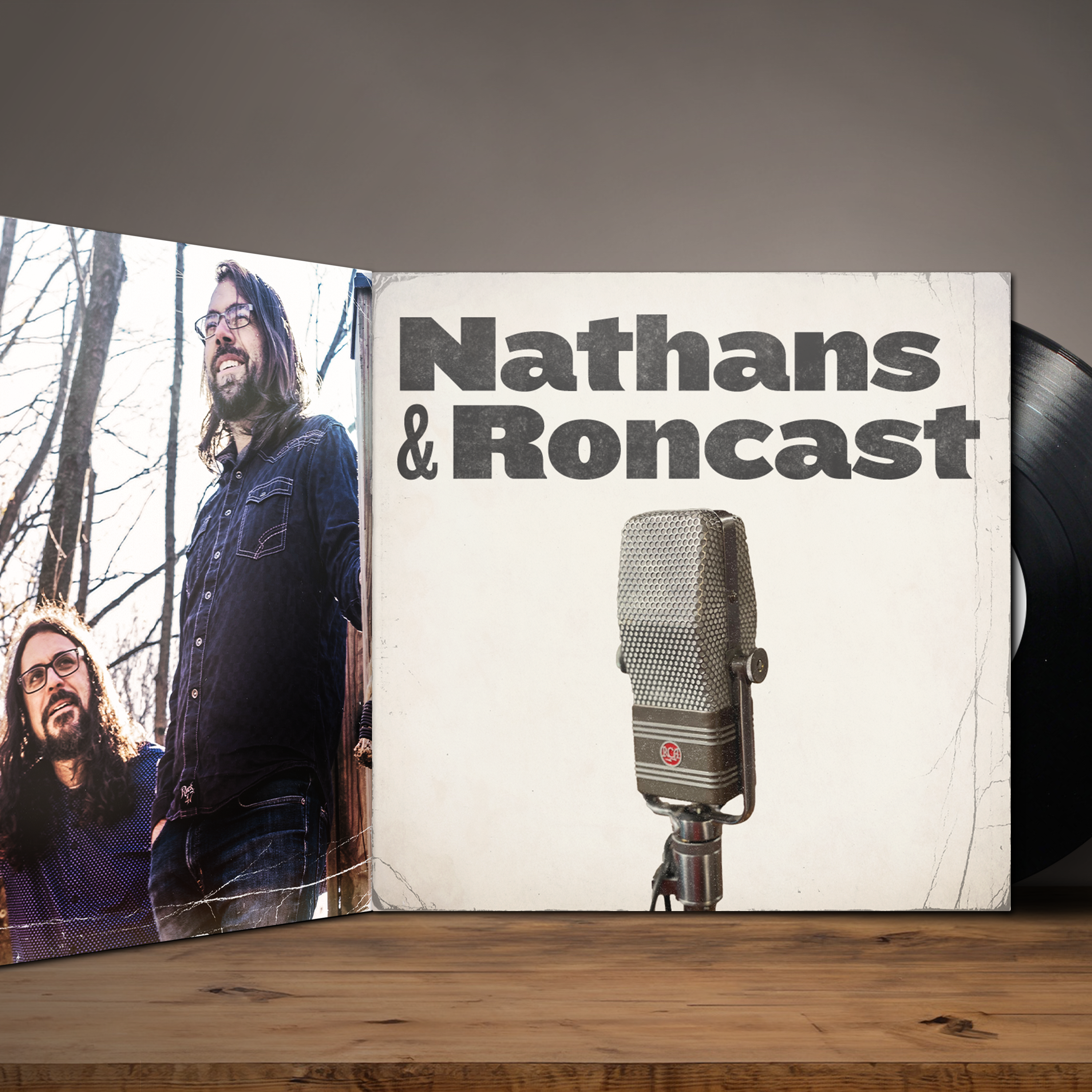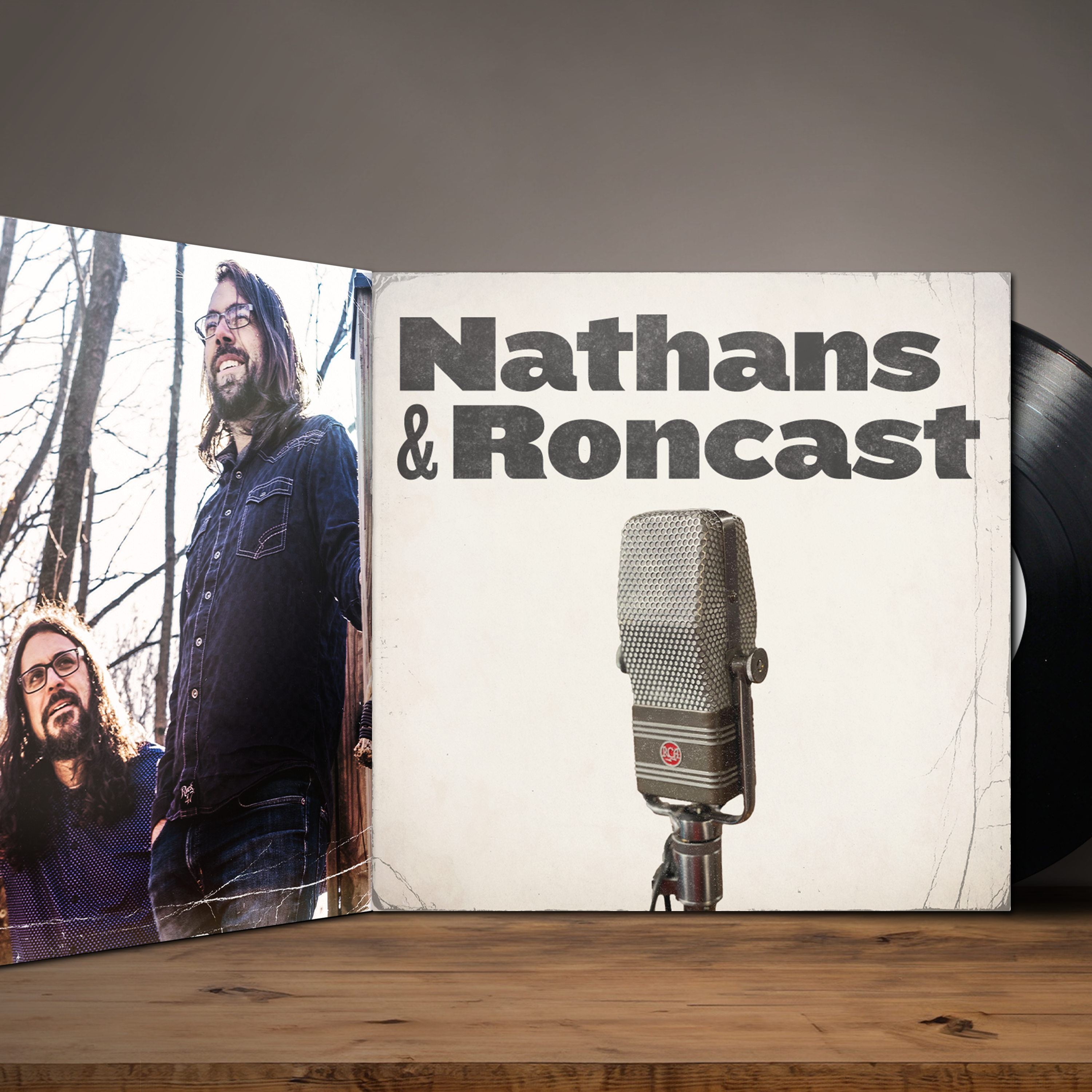[00:00:11] Welcome to the Nathans and Roncast, where we explore songwriting and all its avenues. Today we have a mini episode hosted by me, Michael G. Ronstadt. I'm half of the duo Aaron Nathans and Michael G. Ronstadt, and I've been a professional songwriter, musician, and cellist for at least 20 years. Some of the things that make a song really work for me are relatively math equation esque, a la musician brain. It's maybe not super formulaic, though, meaning I consider it part calculation and part emotion or heart. In my opinion. What makes a songwriter unique and allows them to have their own voice is how they process the music they grew up with. It all goes into the soup of musical influences, and then we grab little bits and ingredients and combine them into our brand new song. To some, including myself. Hopefully, the way we choose to use those ingredients end up sounding absolutely unique. New and yet a little familiar so other humans can relate. It doesn't always happen that way, but ideally, if we aren't copying anyone intentionally and right from our hearts, the limited palette of chord tones, notes, rhythms, instruments, and progressions all combine to create a song that no one's ever heard before. Some of my favorite songwriters are unique to me because I can always tell who it is, even if I don't know the song. I also want to talk about genre. Honestly, me and the idea of staying in a genre don't get along. Roughly. At some point in broadcast history, a station might have played all genres throughout the day, but it was based on popularity and the individual dj's personal likes. Yes, a human was choosing music based on their ears. Wow. What a long lost concept these days. At some point, we had to organize all this music, though, and we have the idea of genre as we kind of see it today. It's so compartmentalized, but that's okay, and that's how our world works. But personally, for me, I love hearing something new and exciting. Please, please, surprise me. One of the best ways to surprise this very human called Michael G. Ronstadt. Yes, that's me. Is to do something different with your bridge. When you're writing a song, I'm okay with something absolutely predictable in the verses. You can have the same progression in the chorus as heck. Keep the same melodies if you want. But if the song wants to have a bridge, a surprise turn is always welcomed. Let's go to the nineties and talk about Weezer. They have a song called Undone, or it's also known as the sweater song, and it's a typical one four five progression, like the song Labamba or twist and shout. But when they get to the bridge, they modulate to bb major instead and they have the same progression, just a different key, and they don't warn you it's gonna go there. Just that guitar solo goes crazy in bb and then it goes back to g for the rest of the song. So I always want to thank Weezer because you just made my day. One of my favorite songwriters is Dan Wilson. He's the lead singer of semisonic, his own solo projects, and he's co written tons of songs with songwriters like Adele, Carole King and many more. I can tell it's his song by the bridge. There's a way he does it that makes me smile. I love it. One more example of a surprise that I can mention is how we songwriters can change keys between the verses and choruses. I like to use the example of Crazy Love Part two, written by Paul Simon from the amazing album Graceland. The verses are in g major and then the chorus is modulate to f. It's really simple, it's really surprising, yet when it goes to f, it feels right at home. One last thing I want to highlight is that one of the more exhilarating aspects of listening to music is when genre gets blended up, meaning you just mash things together that you wouldn't think of doing. For example, Ozo Motley's 1998 self titled and their 2001 embrace the Chaos albums perfectly mash up salsa and hip hop in a way that makes me a person who doesn't really dance. Want to dance? Lucky for you, I sit in a chair to perform so you won't witness me dancing. That's a gift to you from me. Another album that mixes electronic music and folk is Paul Simon's 2006 album Smile, where he collaborated with Brian Eno. It is an adventure worth taking if you want to consider the history of sampling music in hip hop. One example is when Coolio used the classical piece Pachelbel's canon in d for the song see you when you get there in the guitar world. My good friend Brandon Coleman is a jazz guitarist in Cincinnati. He plays acoustic and electric. He's fluent in jazz and progressive rock, so I've seen him just tear it up. And so he gets hired for projects like Ben Soleil's recent album Long Haul, and he's playing everything, but it's more folk. I also just released an album under the group Ricciardi Ronstadt and that features Nissa Ricciardi on vocals and me on cello. I also do a little bit of guitar there but we are doing straight ahead jazz. But because of my folk music leanings, it has a different flavor to it. So check out the album Blue bayou that we released most recently. So to wrap this episode up, I just wanted to encourage people as listeners to consider that an artist's voice is based on their sound, not what genre they may or may not stray from. Personally, for me, I love exploring music and all its possibilities. My voice will come through, whether it's classical, folk, blues, bluegrass, salsa, mexican, mariachi, celtic, old time jazz, progressive, rock, country or americana, just to name a few. Haha. I want to encourage all the songwriters out there not to worry about where your song will fit, but right from your heart, which will naturally pull from the pool of influences unique to you. Beyond that, you can organize them into whatever categories you want, be you, and I think your uniqueness will shine. Thank you for listening to the Nathans and Roncast. You can find more
[email protected]. thank you so much for listening and for now. We'll see you far soon.


